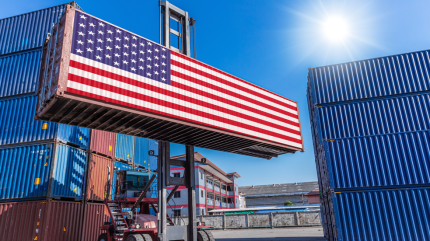
US President Donald Trump has signed an executive order to pull a 40% tariff on Brazilian food and drinks products, including beef and coffee.
According to a statement from the White House yesterday (20 November) “certain agricultural products shall not be subject to the additional rate of duty”.

Discover B2B Marketing That Performs
Combine business intelligence and editorial excellence to reach engaged professionals across 36 leading media platforms.
In July, the Trump administration announced plans to implement the 40% tariff, in response to Brazil’s prosecution of its former President Jair Bolsonaro.
Goods no longer facing the 40% duty include beef, coffee, tea, some fruits, nuts and fruit juices.
Brazil had previously also been facing a 10% reciprocal tariff on goods such as coffee and beef, which was scrapped last week for certain goods as part of a broader removal reciprocal tariffs on specific agricultural products.
In the White House statement, President Trump said it “is necessary and appropriate” to “modify the scope” of products Brazilian products subject to the higher rate of tax.

US Tariffs are shifting - will you react or anticipate?
Don’t let policy changes catch you off guard. Stay proactive with real-time data and expert analysis.
By GlobalDataWhile negotiations between the US and Brazil are “ongoing”, Trump said he had mulled over “information and recommendations” from “various officials” who had argued there were some agricultural products that should not be subject to tariffs, as “there has been initial progress in negotiations with the Government of Brazil”.
The latest order applies to Brazilian imports to the US on or after 13 November, meaning that some businesses may require a refund of the duties collected on those goods while the tariffs were still being charged.
Earlier this month, the Trump administration also outlined framework agreements with four South and Central American countries to remove trade barriers on some products, including meat.
“The deals will help US farmers, ranchers, fishermen, small businesses, and manufacturers to increase US exports to, and expand business opportunities with, these trading partners,” the White House said in a statement, referring to agreements with Argentina, Guatemala, El Salvador and Ecuador.





